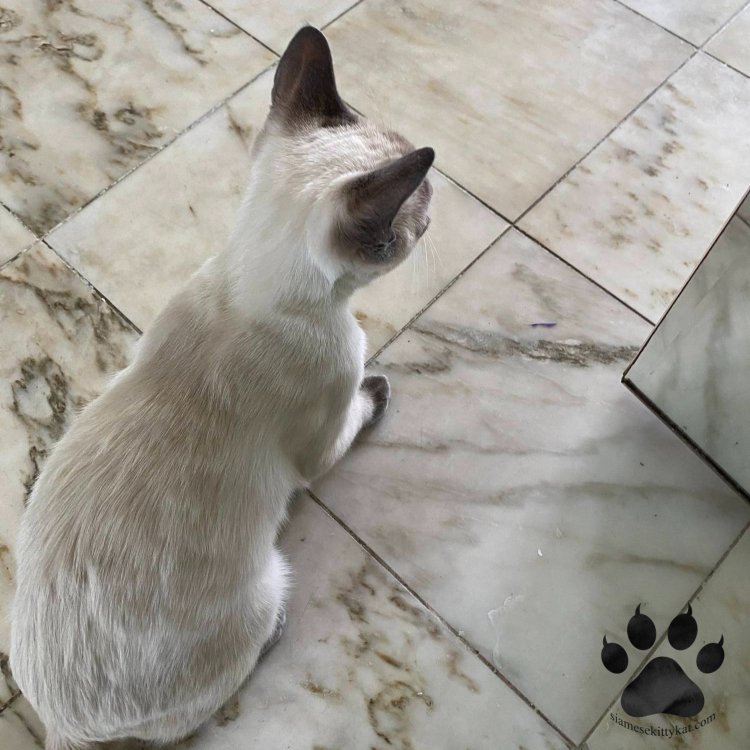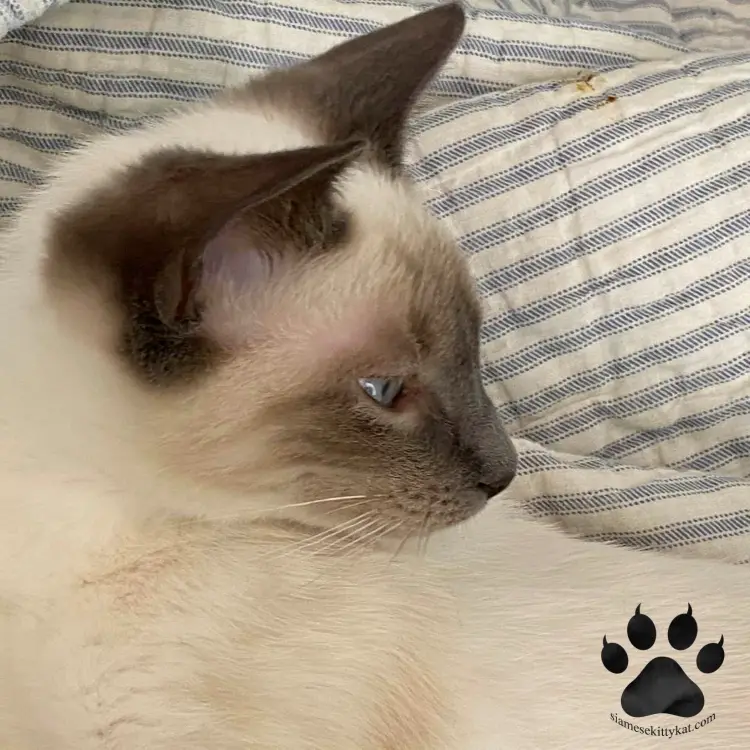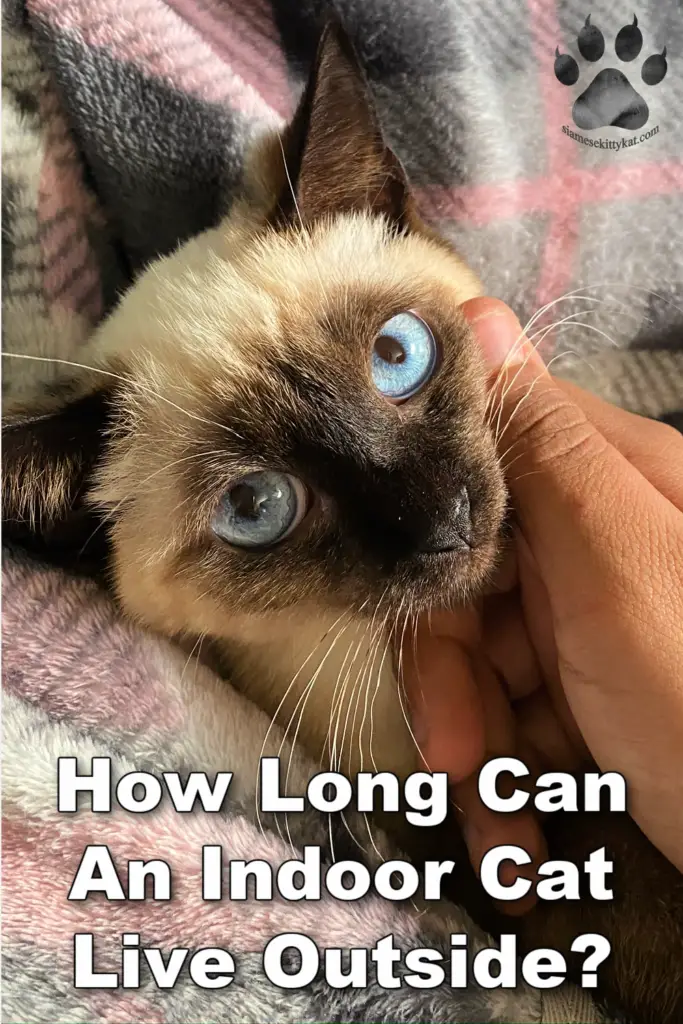Indoor cats are expected to live up to 17 years, while outdoor cats are only expected to live from 2 to 5. This is mainly due to dangers such as cars, animals, diseases, and extreme weather.
It’s a question not easily answered if an indoor cat can survive outside. Many people believe that no, it is not possible and they’ll only die when left outside.
Maybe a better question is “would my indoor kitty survive outside?” Every cat is different, with different survival skills and different personalities. To answer that question, you first need to know why an indoor cat is most likely not able to survive outside.
If you’re looking to let your indoor cat have some of that sweet, sweet freedom, you’d have to find out how to get it used to being outside. Although, there is a huge difference between an indoor cat going outside for a few hours and one that’s been left to fend for itself.
Can indoor cats survive outside?

Some cats will never be any good outside, and that’s that. Even if your feline is outside for a short amount of time, there are many dangers they can possibly bump into.
If your cat is not used to the outside world, they’ll have a much harder time surviving alone.
Here are a few questions you should ask yourself to best determine how well your cat will do outside:
1. Is My Cat Pedigree?
Survival instinct is what keeps anyone and anything alive in uncommon environments. Some cat breeds (like our wonderful Siamese for example) have this bred out of them. They have no sense of traffic and although they have those hunting instincts, they most likely won’t know what to do with them. Whether that would change after time outside, no one knows, and I hope I never have to find out!
Many pedigrees aren’t bred for the outside world, and most breeders will recommend that you keep them indoors. Without those important instincts, it will make surviving outside harder than ever. It is important to take into consideration what breed of cat you have. If you own a born and bred hunter that has some fight in them, they’ll more than likely survive longer.
2. Does My Cat Know How To Hunt?
While all felines have an instinct to hunt, that doesn’t mean they have the know-how! Cats are taught to hunt by their mothers, therefore most domestic cats don’t have the hunting skills needed to survive.
Us human parents can teach our kitties how to hunt using toys, but that doesn’t mean they’ll hunt well when the time comes. If your indoor cat doesn’t know how to hunt well, then there is a high chance they will starve if left to fend for themselves.
3. How Old Is My Cat?
If you have an older cat that has spent its life indoors, it is less than likely to survive on the outside. Just like humans, older cats are far less agile and slower than younger cats. When faced with younger, more territorial cats, they may have a hard time defending themselves. Older cats may also have a much harder time hunting.
4. What Personality Does My Cat Have?
Some breeds are more aggressive and territorial than others. Siamese cats, for example, are extremely territorial. However, they do not do well outside as they’re not very streetwise and rely on their human parents’ love and attention.
If you have a cat that is easy-going or timid, they’ll have a harder time defending themselves. Although, keep in mind indoor cats don’t have to fight for their food and territory, so you may be surprised how they can defend themselves when the time comes.
5. Has My Cat Been Declawed?
In some countries, it is illegal to declaw your cat, but for others, it is not. Once your cat has been declawed, its chances of survival are very slim. They’ll lose a huge chunk of their defense capabilities once their claws are gone.
6. Where Do We Live?
The environment in which you live can have a huge impact on how well your cat can survive. Many people think the countryside is a lot safer since there aren’t many roads or cars, but the countryside can hold its own dangers.
If you live in a place where hunting is common, then your cat could encounter traps, poison, or may even get shot. Although they’ll be more food like birds, mice, and even rabbits.
Can an indoor cat survive outside in winter?

Cats can still survive outside in winter. Although, if the temperature drops super low and into freezing, they can become at risk of hyperthermia and frostbite. It’ll also be harder for them to hunt since most food will either be hibernating or keeping somewhere warm.
During the winter, it can be super helpful to give outdoor cats some shelter to protect them from the cold. If you have a few strays in your area, giving them a shelter to call home may be the thing that gets them through.
Can cats find their way home?
You may have heard stories of cats going missing and ending up at their old address. While this seems impossible to us, cats actually have a homing instinct that helps them perceive direction beyond the 5 senses we humans have.
Cats and dogs bond to their human parents, but cats can also form a strong bond to their home locations. Using their urine or bunting scent glands, they mark their territory. Although, it’s still a mystery how these homing senses work over miles and miles.
Even though cats have this amazing ability to find their way home, it doesn’t mean all lost cats will eventually get home. Indoor cats especially will have duller homing instincts since their scent isn’t spread around their outdoor environment.
This is when a microchip comes in. Having your feline microchipped will increase the likelihood of them returning home safely. If you have an indoor cat, you may not see a reason for them to be microchipped since they never go outside. But, if your cat decides that one day they’re going to bolt out the nearest exit, there isn’t much you can do.
The Bottom Line
If your indoor cat ever finds itself outside due to escaping or getting lost, their chances of survival depend a lot on their personality and how they have been raised.
Indoor cats live longer than outdoor cats – that’s a fact. If you’re considering turning your indoor cat into an outdoor one, maybe consider the dangers first and how well they will do when fending for themselves.
Want to immerse yourself more in the captivating world of Siamese cats? I’ve got all the information you need from their distinct color points to their fun personalities: Siamese Cats: Unique Features and Personality
Get your FREE Siamese Cat 2024 Printable Calendar


